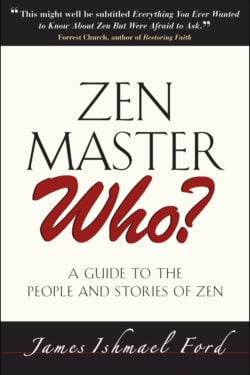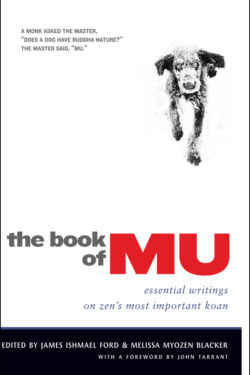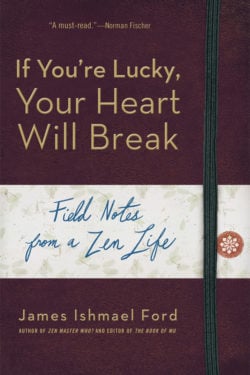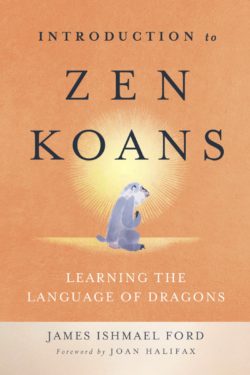James Ishmael Ford
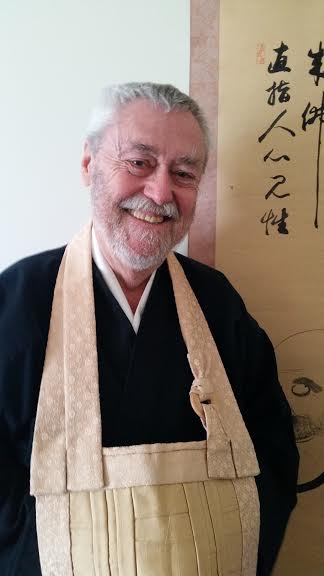
James Ishmael Ford is the Senior Priest at the Blue Cliff Zen Network. James has been a student of Zen for fifty years. He is dually credentialed as a Soto Zen Buddhist priest and as a Unitarian Universalist minister. He lives with his spouse Jan Seymour-Ford and their three-legged cat Cassie in Long Beach, California.
Books, Courses & Podcasts
Zen Master Who?
Zen Master Who? is the first-ever book to provide a history of Zen’s arrival in North America, surveying the shifts and challenges to Zen as it finds its Western home. With the exception of parts of Rick Field’s How the Swans Came to the Lake, there has been no previous attempt to write this chronicle.
James Ishmael Ford begins by tracing Zen’s history in Asia, looking at some of Zen’s most seminal figures—the Sixth Ancestor Huineng, Dogen Zenji (the founder of the Soto Zen school), Hakuin Ekaku (the great reformer of the Rinzai koan way), and many others—and then outlines the state of Zen in North America today. Clear-eyed and even-handed, Ford shows us the history and development of the institution of Zen—both its beauty and its warts.
Ford also outlines the many subtle differences in teachings, training, ordination, and transmission among schools and lineages. This book will aid those looking for a Zen center or a teacher, but who may not know where to start. Suggesting what might be possible, skillful, and fruitful in our communities, it will also be of use to those who lead the Zen centers of today and tomorrow.
The Book of Mu
The word “mu” is one ancient Zen teacher’s response to the earnest question of whether even a dog has “buddha nature”. Discovering for ourselves the meaning of the master’s response is the urgent work of each of us who yearns to be free and at peace. “Practicing Mu” is synonymous with practicing Zen, “sitting with Mu” is an apt description for all Zen meditation, and it is said that all the thousands and thousands of koans in the Zen tradition are just further elaborations of Mu.
This watershed volume brings together over forty teachers, ancient and modern masters from across centuries and schools, to illuminate and clarify the essential matter: the question of how to be most truly ourselves.
Includes writings from: Dogen • Hakuin • Dahui • Thich Thien-An Zenkei Shibayama • Seung Sahn • Taizan Maezumi • Sheng Yen Philip Kapleau • Robert Aitken • Jan Chozen Bays • Shodo Harada Grace Schireson • John Daido Loori • John Tarrant Barry Magid • Joan Sutherland … and many more!
If You’re Lucky, Your Heart Will Break
Using vignettes and anecdotes from his own life—as well as quotations drawn from sources as varied as the Bible, Yiddish aphorisms, and stand-up comedy—Zen teacher and Unitarian Universalist minister James Ishmael Ford shares the gifts won over his lifetime of full-hearted engagement with the Zen path. “I’ve found myself broken open,” Ford says, “and found in that opening my fundamental connection to the whole world.”
What’s more, If You’re Lucky, Your Heart Will Break breathes new life into the Buddhist ideas of karma and rebirth—as well as the Buddhist precepts of ethical action—and finds for them kinship in other spiritual endeavors. Even the most cynical of hearts will find resonance in Ford’s compassionate presentation of basic human truths.
Introduction to Zen Koans
“This marvelous book opens the treasure house of Zen and yet, happily, does not dispel its mystery. James Ford, an excellent storyteller and longtime Zen practitioner, presents a detailed and beautiful description of the craft of zazen, including ‘just sitting’ and various forms of breath meditation—but focuses primarily on koan introspection.
The power of koans, these ‘public cases’ from China, has never ceased to enrich my own experience of Zen. They are a medium of exploration of the history, culture, and view of Zen, but most importantly are a medium of awakening.
James Ford is fundamentally a koan person, and for this, the book is particularly rich, opening the practice of koans in a splendid way. I am grateful for his long experience as a teacher and practitioner of this rare and powerful practice. Since the word koan has found its way into popular English usage, I am grateful too for the more nuanced and fertile view of koans that Ford presents. His definition of the word is telling: “a koan points to something of deep importance, and invites us to stand in that place.”
He has also has created a wonderful translation of the Heart Sutra, Zen’s central scripture—and carefully opens up the heart of the Heart Sutra through scholarship and practice. Rich in textual sources and woven throughout with the perspectives of contemporary teachers, Introduction to Zen Koans sheds new light on ancient teachings. Through it, the reader will discover the importance of lineage, the traceless traces of the Zen ancestors, and the places of ‘just sitting’ and koan practice as paths to awakening, as the great doorways into Zen.”
—from the foreword by Joan Halifax

